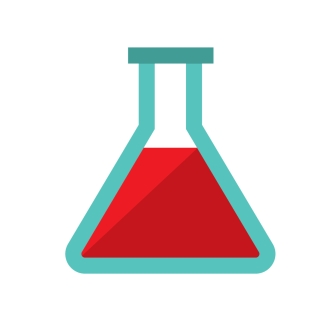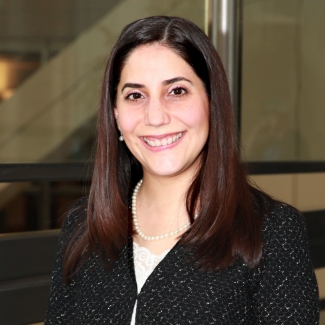Improving red blood cell inventory to support patients with sickle cell disease
Tuesday, September 07, 2021 Tricia Abe
The importance of having a blood supply from ethnically diverse donors—one that can meet the needs of all patients—is brought sharply into focus for patients with sickle cell disease (SCD). Sickle cell disease is an inherited life-threatening condition that is more common in Black and other racialized people. People living with SCD need regular blood transfusions and, like all patients who need blood transfusions, the safest blood for them comes from donors whose blood type matches their own. But unlike other transfusion patients, patients with SCD are especially vulnerable to the risks of transfusion and can face more challenges in finding compatible blood.
Their transfusion risks are greater in part because of the high number of transfusions they receive throughout their lifetimes. With each transfusion, patients with SCD become exposed to many red blood cell antigens contained in the donated units of blood they receive. Some of these antigens are implicated in a potentially life-threatening process that begins when the patient’s immune system doesn’t recognize a donor’s red blood cell antigens and begins an attack by producing antibodies against the donor antigens. This process is called “alloimmunization.” With more transfusions and a growing number of exposures, the risks of alloimmunization increase. To prevent alloimmunization, finding blood from donors whose red blood cell antigens match those of the patient is crucial.
Because blood antigens are inherited, antigen-matched blood is more likely to be found in someone who shares the same ethnic ancestry. For people living with SCD, the challenge in achieving this lies in the lack of diversity in Canada’s blood donors. In Canada, Black and racialized donors—the ones with the best potential to match most SCD patients— are underrepresented in the donor pool. In Canada, roughly 80% of blood donors have White European ancestry and only 1% identify as Black.
Canadian Blood Services is doing more to support transfusion outcomes for patients with SCD: by ensuring that the types of red blood cell units often required for patients with SCD is managed wisely, by testing the right donors to find these units, and by enhancing recruitment and retention of donors who may have a needed blood type.

|

|
|
Logos for the Sickle Cell Disease Association of Canada (SCDAC) and for the Sickle Cell Foundation of Alberta (SCFA) |
|
In collaboration with Biba Tinga, President of the Sickle Cell Disease Association of Canada (SCDAC), and Dr. Jean Walrond, President of Sickle Cell Foundation of Alberta (SCFA), and other partners, Dr. Jennie Haw, adjunct research professor at Carleton University and Canadian Blood Services scientist, is leading a Social Sciences and Humanities Research Council funded research project aimed at better meeting the needs of people living with SCD and their families. This project builds on an important pilot study led by Dr. Walrond. Their goal is to generate actionable evidence to increase blood donation by African, Caribbean, and Black young adults (19-35 years) in Canada. The objectives of the project are to (1) Identify barriers and enablers to blood donation for this population, (2) Evaluate the effectiveness of content produced by SCD associations and Canadian Blood Services aimed at encouraging donation by members of African, Caribbean, and Black communities, and (3) Make recommendations to guide the co-creation of online content and strategies for content dissemination (e.g., social media platforms, mobile apps). The team aims to begin data collection in Fall 2021 with results and recommendations available by Spring 2022.
Canadian Blood Services – Driving world-class innovation
Through discovery, development and applied research, Canadian Blood Services drives world-class innovation in blood transfusion, cellular therapy and transplantation—bringing clarity and insight to an increasingly complex healthcare future. Our dedicated research team and extended network of partners engage in exploratory and applied research to create new knowledge, inform and enhance best practices, contribute to the development of new services and technologies, and build capacity through training and collaboration. Find out more about our research impact.
The opinions reflected in this post are those of the author and do not necessarily reflect the opinions of Canadian Blood Services nor do they reflect the views of Health Canada or any other funding agency.
Related blog posts
A research team that includes experts from Canadian Blood Services and the McMaster Centre for Transfusion Research showed that genotyping red blood cell proteins could help make transfusions safer for patients with sickle cell disease.
Dr. Celina Montemayor-Garcia is a researcher and transfusion medicine specialist whose main interest is understanding how genomics and bioinformatics can be used to improve care for transfusion patients. She spoke to us about advances in precision medicine and genomics, and what they could mean for the future of blood systems.
When a patient has unexpected red blood cell antibodies (non-ABO) in their blood, selecting compatible red blood cell donor units for transfusion is critical. New serological best practices for health-care providers, available on Canadian Blood Service’s professional education website, help ensure patients receive red blood cell units that are the best match for them.


